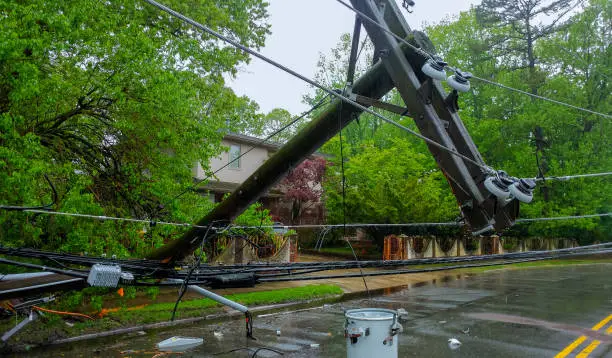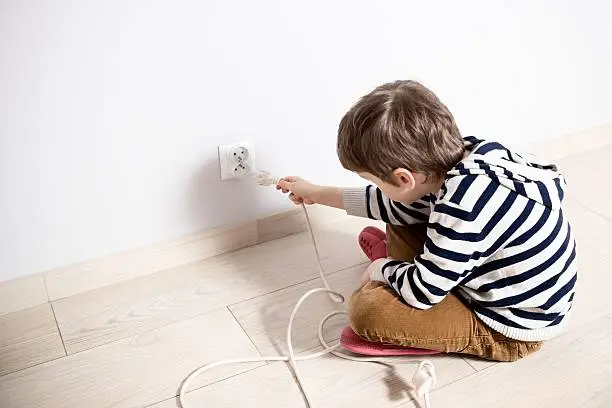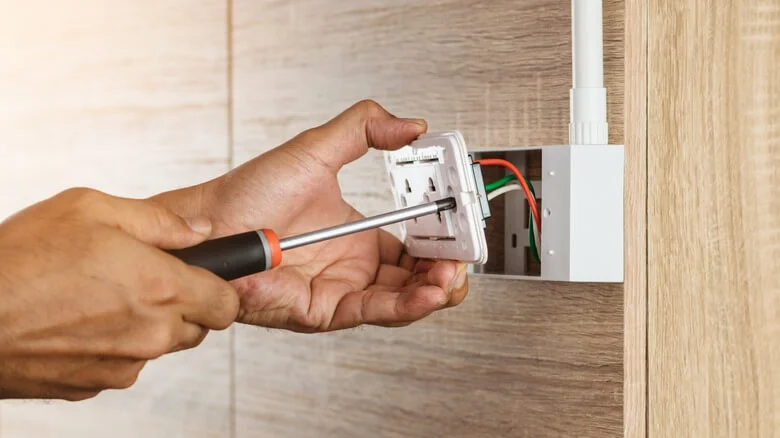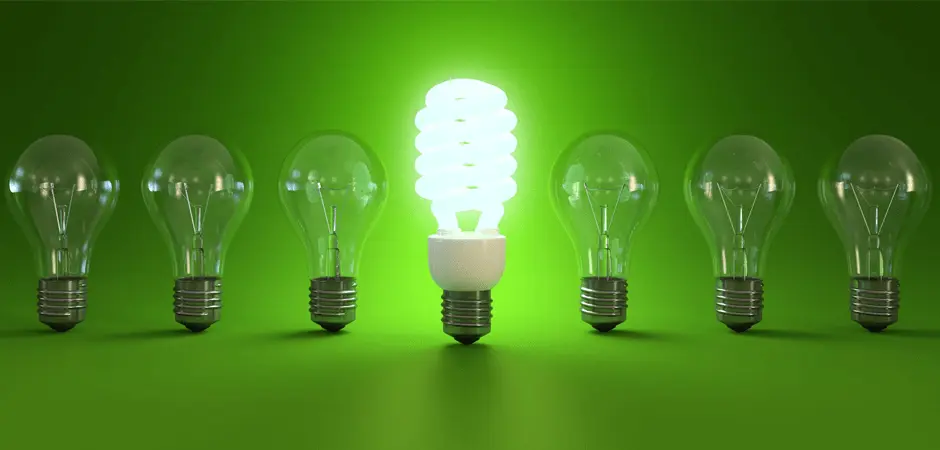Electricity Safety Tips for the Public 2025
Safety Tips 1: Prevention of Electrical Accidents
Addressing Leakage & Line Breakages:

If an electrical leak in a pole or a fallen electricity line is discovered, the nearest electricity complaint center should be informed immediately. The public, especially children, should keep a safe distance from such hazards until the arrival of the electricity staff to resolve the issue.
- Misuse of Electricity Cables: Electricity cables should never be used for hanging clothes.
- Safety with Wet Clothes: Care should be taken, especially by women, not to hang wet clothes on metallic wires, as they can conduct electricity, especially in wet seasons. A cotton cord is a safer alternative.
- Keeping Animals Safe: Animals should not be tied to electricity poles or stay wires to prevent fatal accidents.
- Stagnant Water & Electricity: In instances where a live wire falls into stagnant or running water, both people and animals should be kept at a safe distance until remedial actions are performed by the electricity staff.
- Annual Safety Checks: Ensure to schedule annual safety checks with a certified electrician to maintain electrical systems in top condition.
- Update Outdated Systems: If your property has old wiring systems, consider updating them to modern standards for enhanced safety and efficiency.
- Avoid Overloading: Refrain from overloading sockets and extension cords as it can cause overheating and fire hazards.
- Outdoor Electrical Safety: Ensure all outdoor outlets are weather-protected and are equipped with Ground Fault Circuit Interrupters (GFCI).

Safety Tips 2: Usage of Electrical Appliances and Devices
- Usage of Plugs & Switches: Always use proper plugs and switches.
- Three-Pin Plugs: All types of electrical appliances should be used with a three-pin plug, with the third pin appropriately earthed. Non-conductors like dry cloth, blankets, or wood should be placed under the feet while operating appliances like iron or washing machines.
- Handling Electrical Appliances: Appliances should be switched off before unplugging, and care should be taken to avoid jerking the wire.
- Child Safety with Electricity: Children should not be allowed to unplug devices or move running electric fans, especially during wet seasons.
- Wire and Conductor Safety: Never use bare wires and conductors for electricity extensions.
- Print MEPCO July Month Duplicate Electricity Bill Here…

Safety Tips 3: Maintenance of Electrical Installations
- Repair and Replacement of Wires: Any exposed wires or their joints in a home, shop, or factory should be immediately repaired or taped. Worn electric wiring should be replaced.
- Dealing with Live Wire Incidents: In an event where a person comes in contact with a live wire, use a dry bamboo or wooden rod to free them. Physical removal or touch could lead to electrocution.
- Touching Appliances: Avoid touching metallic parts of washing machines, electric motors, and pedestal fans without disconnecting the power.
- Wet Condition Safety: Never touch any electrical items like switches, plugs, wires, or fans when hands or clothes are wet.
- Use of Regulators and MCBs: Always use automatic voltage regulators with delayed start for deep freezers, refrigerators, and televisions etc. Use appropriate capacitors MCBs (Miniature Circuit Breakers) with air-conditioners.
- Use of Fuses: Always use properly sized fuses at each stage.
- Kite Flying Safety: Kite flying near electricity lines should be avoided as a wet kite string can cause electrocution or short circuit when it falls on live wires or transformers.

Safety Tips 4: Saving Energy
- Switch Off When Not in Use: Always turn off lights, machinery, and other electrical appliances when they’re not in use.
- Energy-Efficient Lamps: Use fluorescent lamps and mercury vapor lamps instead of conventional electric lamps.
- Use of Capacitors: Use proper-sized capacitors for fans and motors i.e., inductive loading.
- Energy Efficient Appliances: Consider investing in energy-efficient appliances. They may be more expensive initially, but they can save significant energy and money over time.
- Effective Cooling and Heating: Ensure your home is well-insulated to maximize heating and cooling efficiency.
- Daylight Utilization: Use natural light as much as possible during the day to reduce the need for artificial lighting.
- Phantom Load Management: Unplug electronics when not in use to avoid phantom loads that can add to your energy bill.
- Smart Thermostats: Consider using smart thermostats to manage energy usage better by scheduling heating and cooling operations based on when you’re home and awake.
- LED Lights: Replace conventional bulbs with LED lights as they are more energy-efficient and have a longer lifespan.
Check the Latest July Month’s, LESCO Bill

